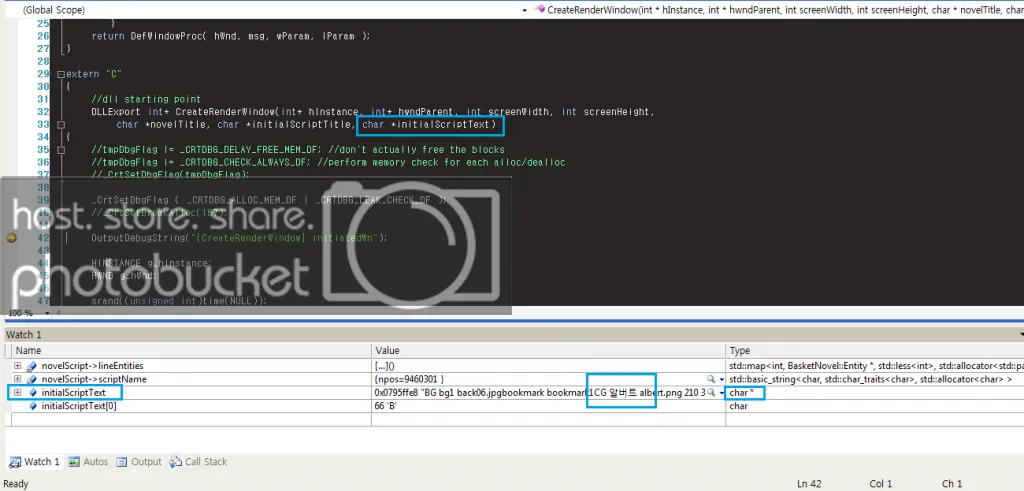The question title is basically what I'd like to ask:
[MarshalAs(UnmanagedType.LPStr)] - how does this convert utf-8 strings to char* ?
I use the above line when I attempt to communicate between c# and c++ dlls; more specifically, between:
somefunction(char *string) [c++ dll]
somefunction([MarshalAs(UnmanagedType.LPStr) string text) [c#]
When I send my utf-8 text (scintilla.Text) through c# and into my c++ dll, I'm shown in my VS 10 debugger that:
the c# string was successfully converted to
char*the resulting
char*properly reflects the corresponding utf-8 chars (including the bit in Korean) in the watch window.
Here's a screenshot (with more details):
As you can see, initialScriptText[0] returns the single byte(char): 'B' and the contents of char* initialScriptText are displayed properly (including Korean) in the VS watch window.
Going through the char pointer, it seems that English is saved as one byte per char, while Korean seems to be saved as two bytes per char. (the Korean word in the screenshot is 3 letters, hence saved in 6 bytes)
This seems to show that each 'letter' isn't saved in equal size containers, but differs depending on language. (possible hint on type?)
I'm trying to achieve the same result in pure c++: reading in utf-8 files and saving the result as char*.
Here's an example of my attempt to read a utf-8 file and convert to char* in c++:
observations:
- loss in visual when converting from
wchar_t*tochar* - since result, s8 displays the string properly, I know I've converted the utf-8 file content in
wchar_t*successfully tochar* - since 'result' retains the bytes I've taken directly from the file, but I'm getting a different result from what I had through c# (I've used the same file), I've concluded that the c# marshal has put the file contents through some other procedure to further mutate the text to
char*.
(the screenshot also shows my terrible failure in using wcstombs)
note: I'm using the utf8 header from (http://utfcpp.sourceforge.net/)
Please correct me on any mistakes in my code/observations.
I'd like to be able to mimic the result I'm getting through the c# marshal and I've realised after going through all this that I'm completely stuck. Any ideas?


